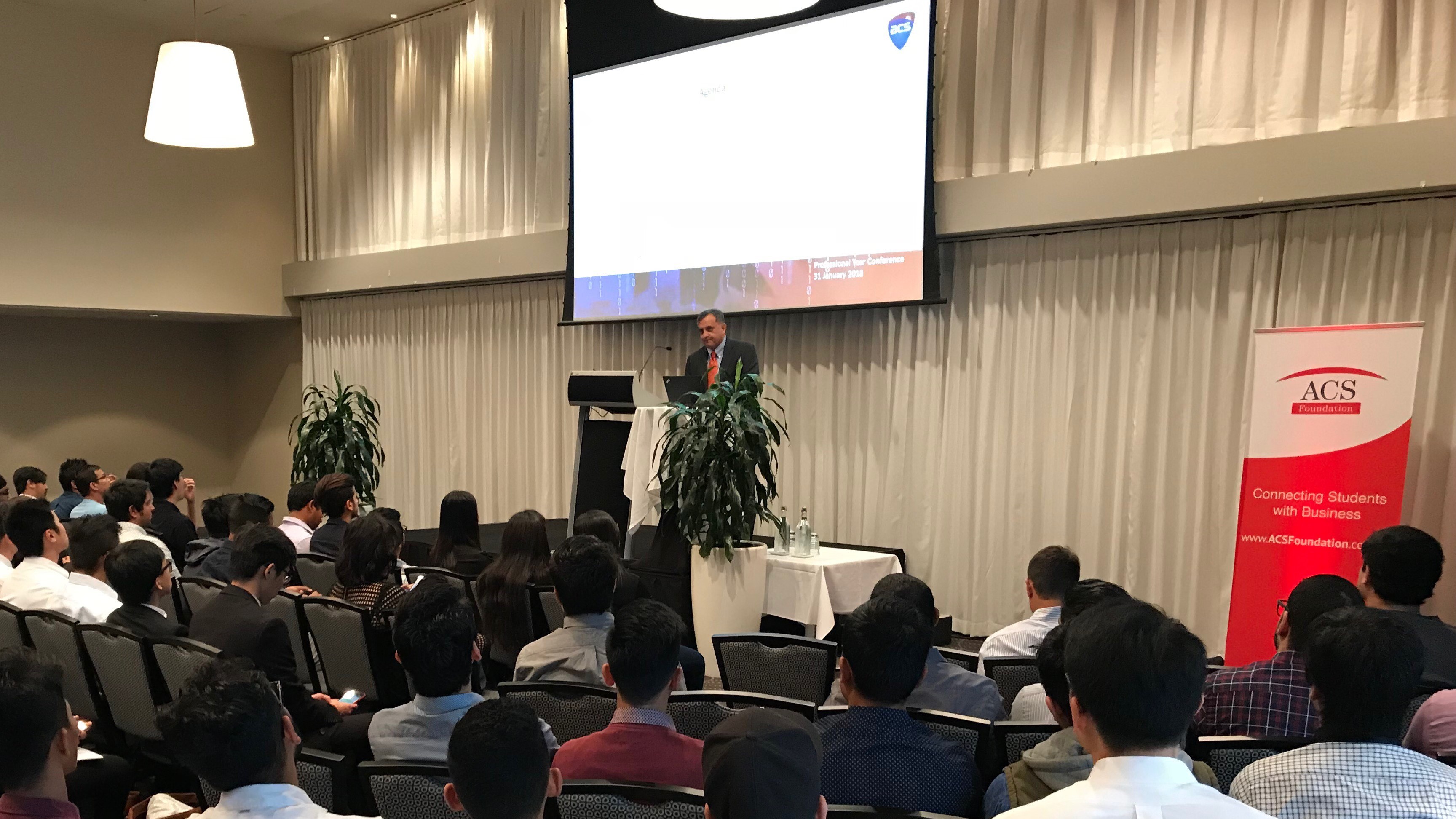Getting your start as a professional in the ICT industry is no easy feat and sometimes it's the little things that count.
Almost 400 Professional Year (PYear) Program students gathered in Sydney on Wednesday to hear three industry experts give tips on how to get that first big break.
Former KPMG Executive Consultant and Founder of PMWorks, Amit Banerji, shared his story of a double migration – from India to England and then England to Australia.
Banerji began his journey by teaching himself English with the help of a television and a few comic books and eventually had his first role in the ICT industry as a junior analyst.
“You have to accept that migration will be hard,” he told the audience. “If you want to fall at the first hurdle you’re not ready, because there’s lots and lots of hurdles.”
“But it gets better.”
His advice to the students for securing the perfect graduate job was simple – get the little things right.
“A CV is a sales document,” he said. “It’s there to sell you, it’s there to market you.”
“It’s not a singular document, you don’t have one CV…You should maintain lots of different versions of your CV because if a job pops up and you’re looking to fulfil a specific role, you have to percolate your experience to portray those aspects.”

Amit Banerji addresses the crowd. Source: Supplied
And if your CV is up to scratch and you land the interview, Banerji’s tip – don’t oversell yourself.
“If you oversell yourself, and people have a tendency to do that, what happens is that you end up doing a role and you’re unsuccessful.
“You will end up doing a role that is beyond you and that will cause you stress, and the employer is going to look at you very badly as well.”
Creating your brand
For Business and Executive Coach, Peter Black, securing the first job is all about creating a strong personal brand and differentiating yourself from others competing for the role.
Black spoke about the different aspects that make up a personal brand, starting with what you wear.
He told students about the importance of dressing for specific occassions and thinking about who they would be seeing that day before getting dressed in the morning.
“One of your personal brand items might be turning up! What we call PQ – your physical quotient,” he said.
“Your LinkedIn is important, but your social media is adjunct to your personal presentation, what we call your personal brand.”
Alongside how you present yourself, Black also stressed the importance of selecting what you present.
He reflected on his time as a graduate recruiter at PricewaterhouseCoopers and told the students what he would look for.
“A degree was about number eight on our priorities,” he said.
What was important to him were key behaviours like leadership and teamwork.
“The thing that is really important is showcasing your achievements.”
“And your achievements are not necessarily your qualifications; your achievements are what you have done in jobs, voluntary activities, school, leadership positions, university societies.”
“It is looking for behaviours.”
Snakes and ladders
Also presenting at the event was Director of Solution and Project Services at Western Sydney University, Daniel Saffioti, who likened an ICT career to a game of snakes and ladders.
He spoke of his journey from the mailroom at the University of Wollongong to Apple HQ in California, and warned students to prepare themselves for the ups and downs they will face as they enter the workforce.
While challenges are unavoidable, he advised students to put enjoyment first as they begin to navigate their careers.
"The most important thing you can have is passion," he said. "Love what it is you do."
The PYear Program aims to provide job-readiness for international ICT and computing graduates as they navigate the Australian workforce, whilst aligning with relevant ICT skills frameworks (SFIA).










